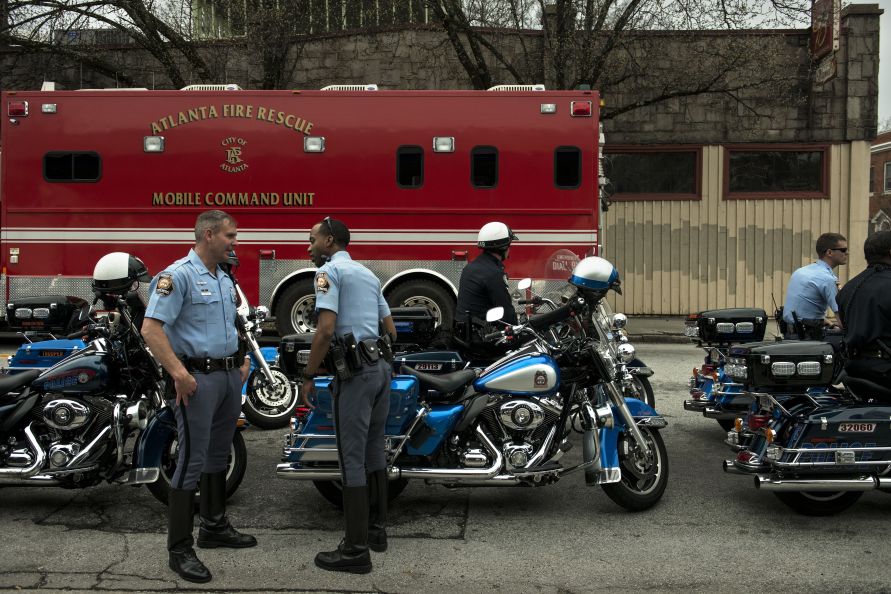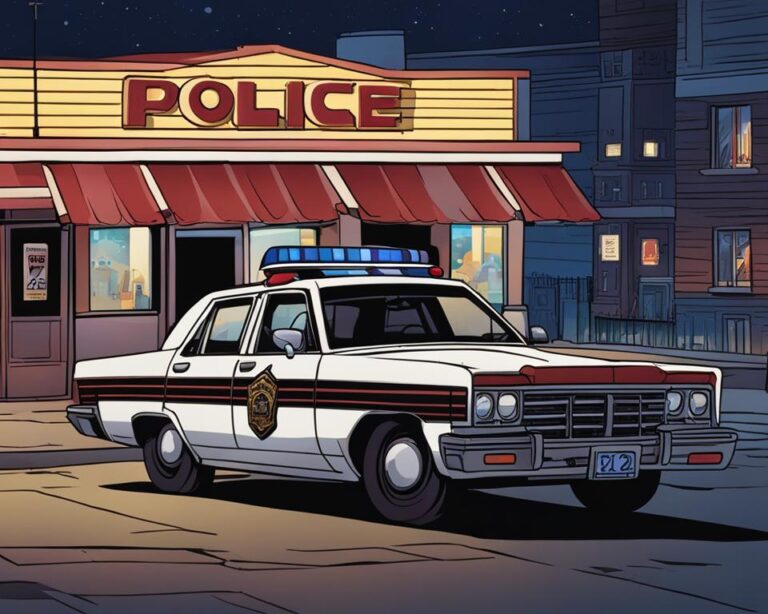Have you ever wondered why we call the police 911 instead of something simpler like 12? Trust me, I had the same question pop into my head one random Tuesday while waiting in line at Starbucks. The idea of dialing just two digits sounds convenient, right? But there's a fascinating history behind this number, and it goes way deeper than you might think. So grab your coffee, sit back, and let me break it down for you in a way that's both entertaining and informative.
You see, emergency numbers aren’t just random digits thrown together by some bored government official. They’re carefully chosen based on practicality, accessibility, and even psychology. Think about it—if everyone could call the cops with just two numbers, wouldn’t chaos ensue? There’s a method to the madness, and today we’re diving headfirst into the world of emergency services and uncovering why 911 reigns supreme.
Before we dive deeper, let’s establish one thing: this isn’t just trivia. Understanding how emergency numbers work can literally save lives. Whether you’re in the U.S., Canada, or halfway around the world, knowing the right number to dial in an emergency is crucial. And hey, maybe after reading this, you’ll impress your friends with your newfound knowledge of emergency protocols. Who doesn’t love a good party trick?
Read also:Demond Wilson The Journey Of A Remarkable Talent
What Exactly Is an Emergency Number?
An emergency number is basically a shortcut to connect you with first responders—police, fire departments, and medical services—when you’re in serious trouble. It’s like having a direct line to superheroes who swoop in when things go sideways. In many countries, these numbers are standardized so people don’t have to memorize a bunch of different codes.
But here’s the kicker: not all emergency numbers are created equal. Some countries use three-digit codes, others use two, and a few even require you to dial a full phone number. For example, if you’re in the UK, you’d dial 999, but if you’re in Australia, it’s 000. Confusing, right? So why does the U.S. use 911 specifically? Let’s explore that next.
Why Not Just Dial 12?
At first glance, calling the police with just two digits seems like a no-brainer. After all, shorter numbers are easier to remember, right? But there’s a reason why most countries avoid using super-short numbers for emergencies. Here’s the deal:
- Misdialed Calls: If the emergency number was only two digits, there’s a higher chance of accidental calls. Imagine reaching for your phone during a late-night movie and accidentally hitting two buttons. Suddenly, you’ve got a SWAT team showing up at your door!
- Technical Limitations: Back in the day, phone systems weren’t as advanced as they are now. Short numbers like 12 could conflict with other existing codes or even internal system functions.
- Global Standardization: Many countries already had their own emergency numbers in place before the concept of 911 became widespread. Switching to something as simple as 12 would’ve caused confusion and required massive overhauls of existing infrastructure.
So while 12 might sound catchy, it’s not exactly practical. And let’s be honest, nobody wants to deal with accidental SWAT teams showing up uninvited.
A Brief History of 911
Now that we’ve established why 12 isn’t a great choice, let’s talk about where 911 came from. The origins of this iconic number date back to the late 1960s when the United States was grappling with how to modernize its emergency response system. Believe it or not, before 911, people had to manually look up and dial specific phone numbers for each type of emergency service. Talk about inconvenient!
In 1967, the Federal Communications Commission (FCC) teamed up with AT&T to create a universal emergency number. After much debate, they settled on 911 because:
Read also:Megan Thee Stallion Height Everything You Need To Know About The Queen Of Trap
- It’s easy to dial on rotary phones (yes, those old-school things your grandparents used).
- It doesn’t conflict with area codes or existing phone numbers.
- It’s short enough to remember but long enough to avoid accidental calls.
Fast forward to February 16, 1968, and the very first 911 call was made in Haleyville, Alabama. Since then, 911 has become synonymous with emergency services across the United States and beyond.
How Does 911 Work Anyway?
When you dial 911, your call gets routed to the nearest Public Safety Answering Point (PSAP). Think of PSAPs as command centers where trained dispatchers take your call and send help your way. These dispatchers are the unsung heroes of emergency services, working tirelessly to keep us safe.
Here’s how the process usually works:
- You dial 911, and your call is automatically connected to the closest PSAP based on your location.
- A dispatcher answers your call and asks for details about the emergency.
- Depending on the situation, the dispatcher contacts the appropriate first responders—police, firefighters, or paramedics.
- Help arrives at your location as quickly as possible.
It’s a pretty seamless system when everything goes according to plan. But what happens when things don’t? That’s where training and technology come in. Dispatchers undergo rigorous training to handle high-pressure situations, and advancements in GPS and caller ID make it easier to pinpoint your exact location.
Global Emergency Numbers: A Quick Comparison
While 911 is the go-to number in the U.S., other countries have their own emergency codes. Here’s a quick rundown of some global standards:
| Country | Emergency Number |
|---|---|
| United States | 911 |
| United Kingdom | 999 |
| Australia | 000 |
| European Union | 112 |
| India | 100 |
As you can see, there’s no one-size-fits-all solution when it comes to emergency numbers. Each country tailors its system to fit local needs and infrastructure. But regardless of where you are, the goal remains the same: get help to those who need it as fast as possible.
Can Technology Replace Traditional Emergency Numbers?
With the rise of smartphones and apps, some people wonder if traditional emergency numbers will eventually become obsolete. While technology has certainly enhanced how we access emergency services, it’s unlikely that 911 will disappear anytime soon. Here’s why:
- Universal Accessibility: Not everyone has a smartphone, but almost everyone has access to a basic phone capable of dialing 911.
- Reliability: Even if your phone dies or you lose signal, pressing the emergency button on most devices will still connect you to help.
- Human Connection: Sometimes, talking to a real person can make all the difference, especially in high-stress situations.
That said, innovations like text-to-911 and voice recognition software are making it easier for people with disabilities to communicate during emergencies. As technology continues to evolve, we’ll likely see more hybrid solutions that combine the best of both worlds.
The Psychology Behind Emergency Numbers
Choosing an emergency number isn’t just about functionality—it’s also about psychology. Researchers have studied how people perceive and remember numbers, and it turns out that certain patterns are more effective than others. For example:
- Repetition: Numbers with repeated digits (like 999) are easier to recall because they form a memorable pattern.
- Simplicity: Shorter numbers are generally preferred because they’re quicker to dial and less prone to errors.
- Cultural Significance: Some numbers carry cultural or symbolic meaning, which can influence how they’re perceived.
When the FCC chose 911, they likely considered all of these factors. It’s short, simple, and easy to remember without being too generic. And hey, those nines kind of look like emergency lights flashing, don’t they?
What Happens If You Accidentally Dial 911?
We’ve all been there—reaching for our phones in the dark and accidentally hitting the wrong buttons. If you ever find yourself unintentionally dialing 911, don’t panic. Simply stay on the line and explain the situation to the dispatcher. They’ll appreciate the honesty and won’t send a SWAT team to your house unless you give them a reason to.
Pro tip: Most smartphones have a feature that locks the keypad after a certain period of inactivity. Enable this setting to reduce the risk of accidental calls. Your local dispatchers will thank you!
Common Misconceptions About 911
There are plenty of myths floating around about emergency services, so let’s clear a few of them up:
- Myth: You can only call 911 from a landline. False! You can call 911 from any phone, including prepaid and unlocked devices.
- Myth: Dispatchers can always track your location. While GPS technology has improved, it’s not foolproof. Always try to provide as much information as possible about your location.
- Myth: Texting 911 is the same as calling. Not quite. While text-to-911 is available in some areas, it’s not universally supported and may take longer to process than a voice call.
Knowing the facts can help you stay calm and prepared in an emergency. And remember, if you’re ever unsure, it’s always better to err on the side of caution and dial 911.
How Can You Prepare for an Emergency?
Being prepared is half the battle when it comes to emergencies. Here are a few tips to keep in mind:
- Program important contacts into your phone, including family members and local emergency services.
- Keep a list of allergies and medical conditions handy in case you’re unable to communicate.
- Teach children how to dial 911 and what information to provide.
A little preparation goes a long way in ensuring you’re ready for anything life throws your way.
Conclusion: Why 911 Works Better Than 12
So there you have it—the real reason we call the police 911 instead of 12. While shorter numbers might seem more convenient at first glance, the practicality and reliability of 911 make it the clear winner. From its origins in the 1960s to its continued evolution today, this three-digit code has saved countless lives and will likely remain a staple of emergency services for generations to come.
Now that you know the story behind 911, I challenge you to share this knowledge with someone else. Whether it’s a friend, family member, or even a stranger, spreading awareness about emergency protocols can make a real difference. And who knows? One day, that knowledge might save someone’s life—including yours.
Thanks for reading, and stay safe out there!
Table of Contents
- What Exactly Is an Emergency Number?
- Why Not Just Dial 12?
- A Brief History of 911
- How Does 911 Work Anyway?
- Global Emergency Numbers: A Quick Comparison
- Can Technology Replace Traditional Emergency Numbers?
- The Psychology Behind Emergency Numbers
- What Happens If You Accidentally Dial 911?
- Common Misconceptions About 911
- How Can You Prepare for an Emergency?



